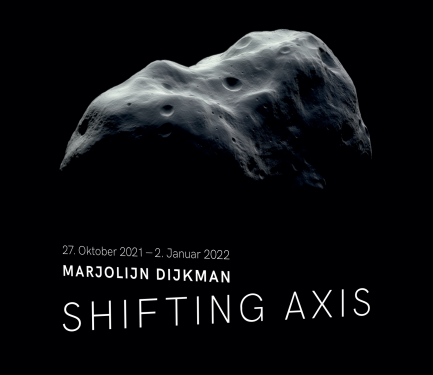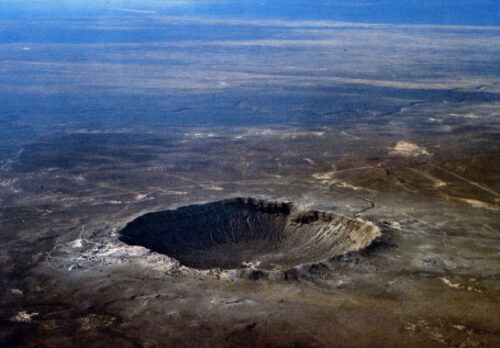Solo Exhibition
27.10.2021–02.01.2022: Solo, Edith Russ Haus, Oldenburg, DE
Shifting Axis, Marjolijn Dijkman’s first large-scale solo exhibition in Germany, offers insight into the oeuvre of the Dutch artist, whose fascination with humankind’s hunger for knowledge and discovery has produced an exciting practice in which the paths of science, cultural history, and art converge. The exhibition’s title is borrowed from a 2015 landmark work by Dijkman: the site-specific installation which is an altered version of a Foucault pendulum. The French physicist’s pendulum from 1851 was the first tool to satisfactorily demonstrate Earth’s rotation on its axis. But the traces made by the particular trajectory of Dijkman’s pendulum are only partly created by the rotation of Earth; they are also manipulated by a hidden digital and mechanical system that influences the pendulum to take on unpredictable movements. The mesmerizing and constantly changing patterns made in the sand below the pendulum suggest a spinning Earth that is out of balance. This exhibition’s title thus intends to highlight that the wider context in which we revisit Dijkman’s works is one of the looming climate catastrophe, and in particular the moment in 2015 when Inuit Elders warned of their odd observations in the Arctic and soon later scientific studies suggested that Earth’s axis is indeed shifting.
All of the artist’s research-based projects are driven by curiosity with how cosmic forces relate to human science, cosmology, and our bodies, and furthermore how these scientific quests have been represented in cultural history. Dijkman’s critical and poetic investigations use scientific tools to facilitate her projects meanwhile fuelled by the humble acknowledgment that the basic questions and interests of scientific research are not “neutral” or objective but rather rooted in our cultures and ideologies. The visual dimensions into which Dijkman invites viewers are largely inaccessible to the naked human eye. She builds her visual universe by looking into both the microscope and the telescope, constantly reflecting on the limitations of the body and the human quest to overcome them.
Nearly all Dijkman’s works question the perspective of human vision, by seeking to look in completely different directions, scales, and ways. And this shift of perspective is what seems to be needed now: as all our previous understandings of the world seem to fall into confrontation in the face of the world-endangering climate crisis, humankind urgently needs to discover new visions, starting with new outlooks on the world.
Alongside site-specific video and sculptural installations, the Shifting Axis exhibition displays yet another iteration of the artist’s ongoing LUNÄ project (2011–): an installation in the Edith-Russ-Haus’s semipublic installation case, the Aquarium. LUNÄ is a copy of the original table used by the Lunar Society, an eighteenth-century group of British industrialists, scientists, poets, and writers. They used to hold inspiring meetings—mostly during full moons—during which they explored the ways that science, technology, and art could serve society. Three centuries later, LUNÄ revisits this moment of historical significance. A facsimile of the table around which the Lunar men met provides context to speculate on and critically investigate topics the original society discussed as well as to explore new ideas within related fields.
__
EDITH-RUSS-HAUS for Media Art
Edith Russ Haus, Oldenburg, Germany
28 October 2021, 14:00 – 02 January 2022, 18:00
Opening: 27 October 2021, 18:00

